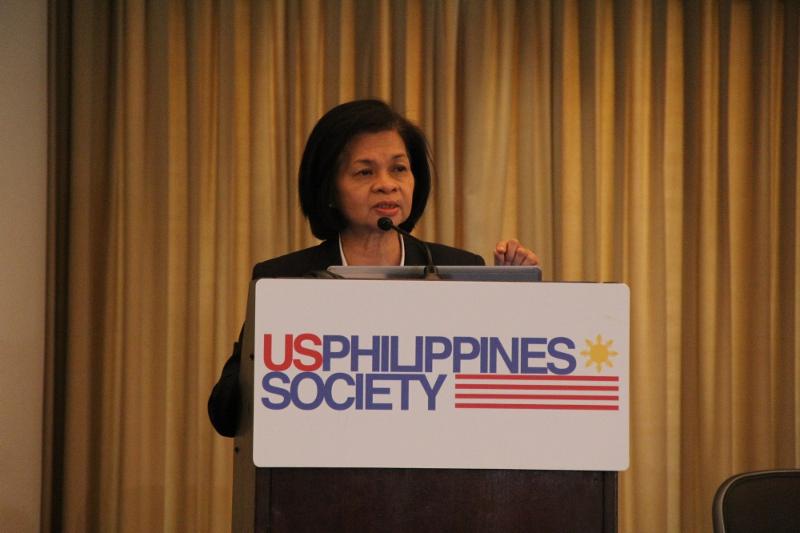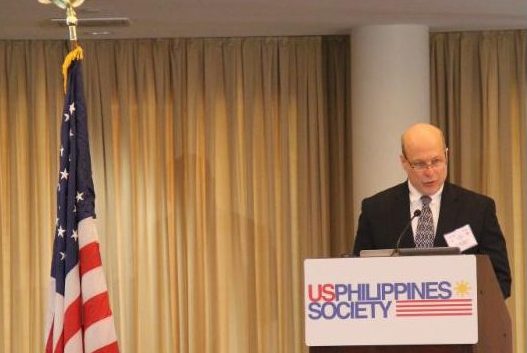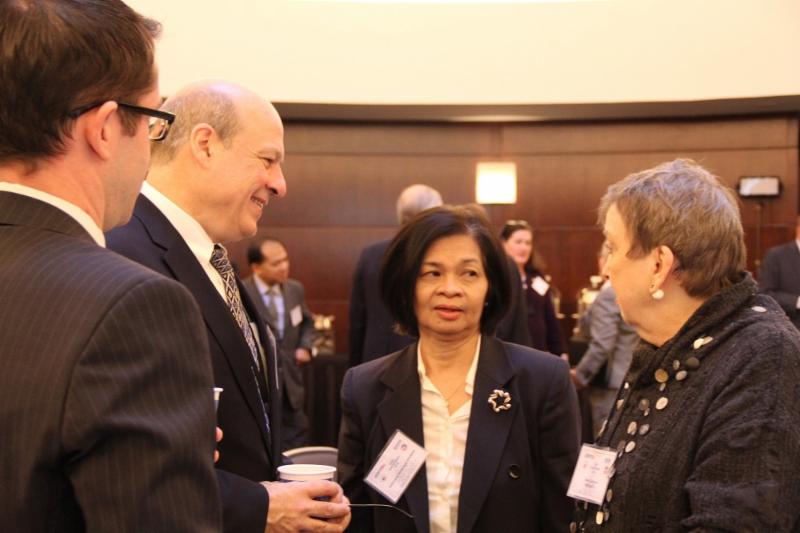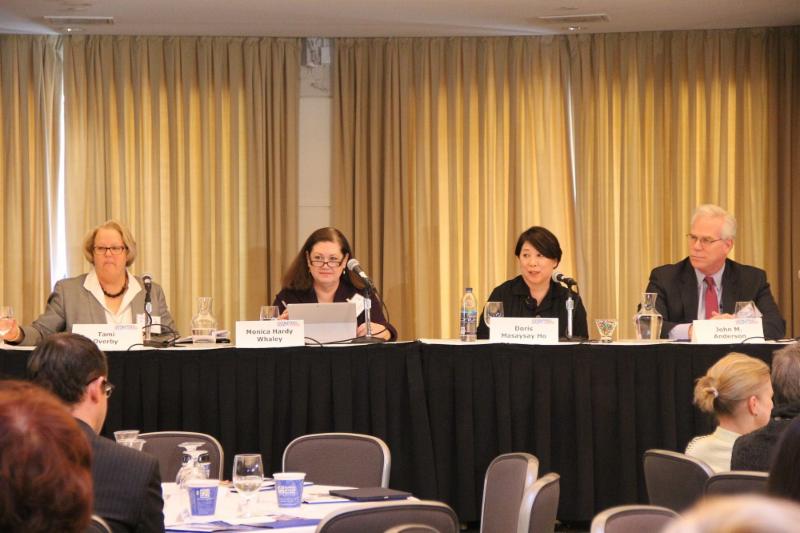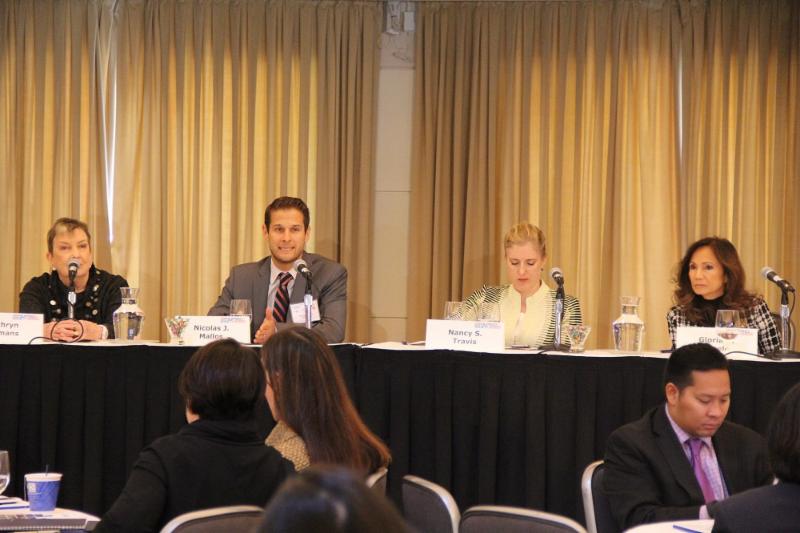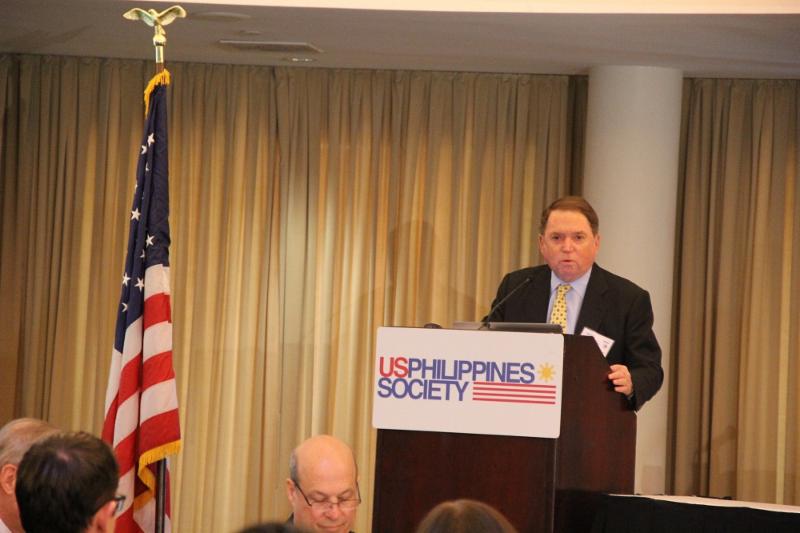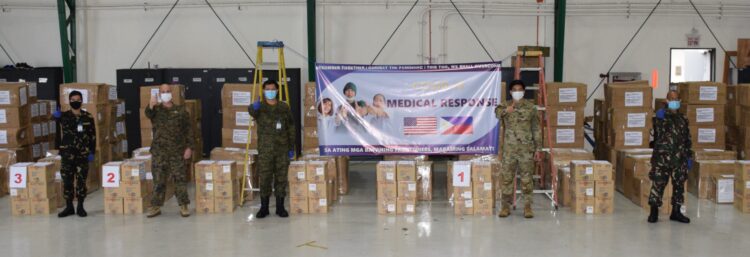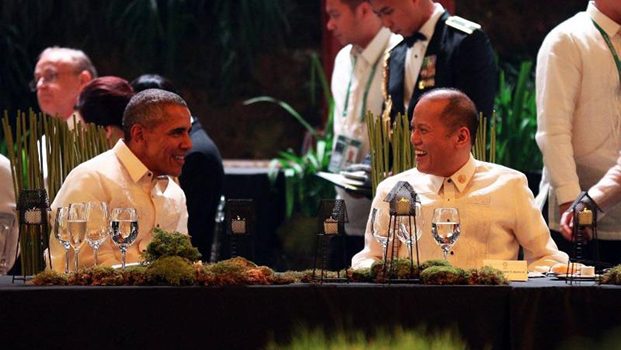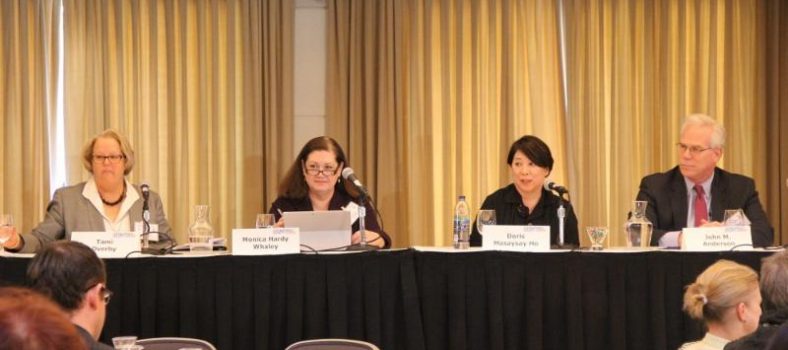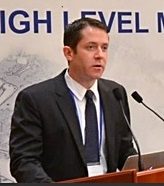APEC 2015 Symposium Highlights Progress in Building Inclusive Economies and Sustainable Growth
WASHINGTON, D.C.- On October 30, as President Obama prepares to meet with Asia-Pacific leaders in Manila for the annual APEC Summit, November 18-19, representatives from the Philippines and the United States gathered in Washington, DC to discuss this year’s goals and priorities. “APEC Philippines 2015,” a symposium held at the Ronald Reagan Building and International Trade Center, featured keynote addresses by U.S. Senior APEC Official Matt Matthews and his Philippine counterpart Ambassador Laura Del Rosario. The forum was organized by the US-Philippines Society, in partnership with the U.S. Chamber of Commerce, the Philippine Embassy, and the Ronald Reagan Building and International Trade Center.
Building Inclusive Economies
Ambassador Del Rosario, Philippine Foreign Affairs Undersecretary for International Economic Relations and Chair for the Senior Officials’ Meeting of APEC 2015, traced APEC’s evolution since the summit was last held in the Philippines in 1996. She likened the broad APEC agenda to a musical masterpiece with instruments playing together, each instrument producing its own music but all leading to a single goal of producing symphonic harmony. The one major goal and one definite key for this year’s APEC is the theme of “Building inclusive economies, Building a better world.”
as “everyone having a fair shot because everyone is playing by the same set of rules.”
- Undersecretary Laura Del Rosario.
- Deputy Assistant Secretary Matt Matthews.
- Speakers Matt Matthews and Laura Del Rosario discuss APEC matters with Kate Clemans and U.S. Principal APEC Coordinator Ryan MacFarlane.
Micro, Small, and Medium Enterprises (MSME’s)
APEC is working on nurturing micro, small, and medium enterprises (MSMEs) to improve its competitiveness in the global market. Deputy Assistant Secretary of Commerce and SME Working Group Chair John Andersen reported on cooperative efforts between SME’s and global retailers and suppliers. He continued to identify steps taken to facilitate trade by “simplification of rules of origin, use of IT to ease documentation, streamline customs procedures, widen opportunities for SME’s providing goods and services through ICT (Information and communications technology) and e-commerce.” To level the playing field, local National Code of Business Ethics was developed to guide large corporations and SME’s within member economies.
Incubators and Young Entrepreneurs
Doris Magsaysay-Ho, Chair of the APEC Business Advisory Council, cited technology as a tool in leveling the playing field for MSMEs. She said APEC is developing technology incubators to be launched in November as a networking tool for young entrepreneurs and investors in the region.
Full Participation of Women
Inclusive growth also entails optimizing the full participation of women in the economy, according to Monica Whaley, President of the National Center for APEC. The Philippines has two female APEC Chairs, U/Sec Del Rosario as SOM Chair and Ms. Magsaysay-Ho as ABAC Chair. Ambassador John F. Maisto, President of US-Philippines Society, also pointed out that seven of the eleven speakers at the forum are women.
- Panel One discusses Business & Growth (Left to right) Tami Overby, Monica Whaley, Doris Magsaysay Ho and DAS John Andersen
- Panel Two presents Business Models that align with APEC initiatives (Left to right) Kate Clemans, Nicholas Mallos, Nancy Travis and Gloria Steele
- Amb Thomas Hubbard welcomes participants and offers perspectives on APEC’s development
Deputy Assistant Administrator for Asia Gloria D. Steele emphasized USAID’s support for women’s economic empowerment and development of a checklist of policy recommendations to reduce health-related barriers to women’s ability to actively participate in the labor force.
Health and Environment
Rapid and successful economic growth in APEC has been accompanied by health and environmental concerns. According to Nicholas J. Mallos, Director of the Trash Free Seas program of Ocean Conservancy, “With an increase in prosperity, we are seeing rapid growth in plastics consumption. The result has been waste flowing into rivers, into waterways, and ultimately into the ocean,” said Mallos. To meet this challenge, APEC is supporting ways to spur initiatives in the waste management industry.
DAS Matthews described how an initiative to reduce tariffs of 54 listed environment-friendly goods to less than 5% by all member economies is expected to successfully conclude by the end of 2015.
A cleaner environment translates to healthier workers, and “healthy workers are better workers,” according to Nancy S. Travis, Vice-President for International Compliance and Governance for the Advanced Medical Technology Association.
Education and Job Creation
Education is another APEC priority. “I think all agree that without improving our own education and addressing the needs of the future, we will not be able to address the challenges to come,” said Undersecretary Del Rosario.
She added, “Our children now are being trained for jobs that don’t exist yet. We do not know what the jobs of the future will look like so we have to train our people in such a way that they learn how to be nimble, they know how to connect the dots.”
Ambassador Thomas Hubbard, founding director of the USPHS, delivered welcome remarks that contrasted APEC Manila 20 years ago with today’s challenges.The two panel presentations were chaired by U.S. Chamber of Commerce Senior Vice President for Asia Tami Overby and C & M International Executive Vice President Kathryn Clemans.
APEC Philippines 2015: Video highlights
APEC Philippines 2015: Photo Gallery
Photo credit: Embassy of the Philippines


